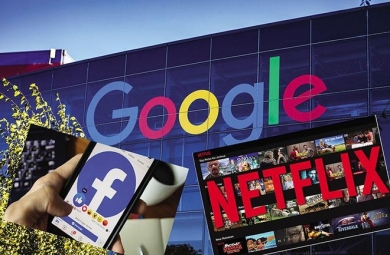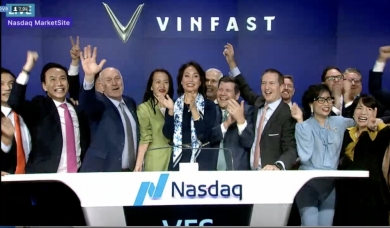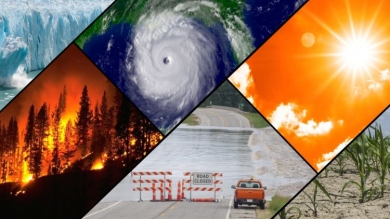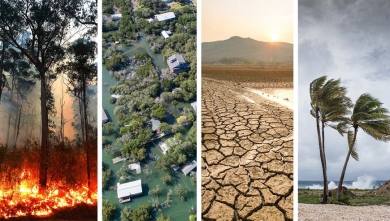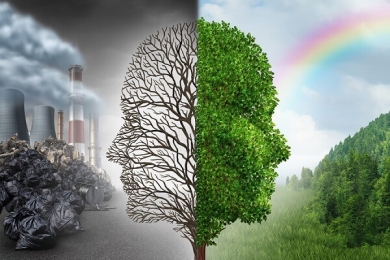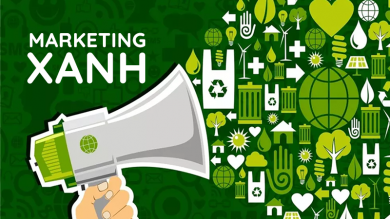The West’s warnings about Vladimir Putin’s future plans are getting louder—but not any more convincing.
 Russian President Vladimir Putin speaks on the phone in his office in Saint Petersburg on Dec. 15, 2018.
Russian President Vladimir Putin speaks on the phone in his office in Saint Petersburg on Dec. 15, 2018.
Apparently, key members of the Western foreign-policy elite are mind readers: They claim to know exactly what Russian President Vladimir Putin’s intentions are. Prominent officials and political commentators increasingly agree that his ambitions are limitless and that Ukraine is just his first target.
U.S. Secretary of Defense Lloyd Austin has said, “Putin will not stop at Ukraine.” Former CIA Director David Petraeus told CNN’s Christiane Amanpour, “Putin won’t stop there.” Ukrainian President Volodymyr Zelensky warned, “Lithuania, Latvia, Estonia, Moldova may be next,” and U.S. Ambassador to Great Britain Jane Hartley said that “anybody who thinks that Russia may stop after this … is wrong.” Lithuanian Foreign Minister Gabrielius Landsbergis is on the same page, having said, “Russia is not going to stop. … [Putin’s] obviously got plans to go further.” U.S. President Joe Biden issued the exact same warning back in December 2023, and so did NATO Secretary-General Jens Stoltenberg. Western officials aren’t sure when Russia is going to go after NATO, but a growing chorus seems to believe a wider war is inevitable if Moscow is not decisively defeated.
As Walter Lippmann warned, “When all think alike, no one thinks very much.” The plain fact is that none of these people know what Putin or Russia will do if the war in Ukraine ends with Russia in control of some of Ukraine’s pre-2022 territory. Neither do I, and neither does anyone else, except maybe Putin himself (and he may not know for sure). It’s possible that Putin does have vast ambitions and will try to follow a costly success in Ukraine with a new attack somewhere else. But it is also entirely possible that his ambitions do not extend beyond what Russia has won—at enormous cost—and that he has no need or desire to gamble for more. Putin recently declared that Russia was not going to attack NATO, for example, though he also pointed out that F-16s or other aircraft being provided to Ukraine would be legitimate targets once they are deployed there (duh). No one should take Putin’s assurances at face value, but neither should one automatically assume that everything he says is a lie.
Of course, those Western experts issuing lurid warnings about Putin’s future actions are trying to convince Western publics (and the U.S. Congress) to pony up more aid for Ukraine and more money for European defense. To be clear, I’m also in favor of continuing aid for Ukraine, and I’d like to see NATO’s European members bolster deterrence by building up their conventional forces. What bothers me is the reflexive threat inflation that inspires such pronouncements, along with the tendency to treat these gloomy forecasts as if they were established truths, and to portray anyone who questions them as naïve, a pro-Russian stooge, or both.
The belief that Putin has unlimited ambitions rests, in part, on the familiar liberal claim that all autocrats are innately aggressive and difficult to deter. The logic is simple: “All dictators seek to expand; Putin is a dictator; ergo, Putin won’t stop with Ukraine. QED.” This syllogism is an article of faith among liberal elites, but there is little evidence to support it. To be sure, some dictators—such as Napoleon or Adolf Hitler—were dangerous serial aggressors, which is why any autocrat we happen to be at odds with today inevitably gets labeled as “another Hitler.” But other dictators were rather well-behaved on the international stage, however egregious their conduct at home might have been. Mao Zedong was a tyrant by anyone’s definition, and his policies were responsible for the deaths of millions of his countrymen, but Mao’s only war of conquest was the seizure of Tibet in 1950. Otto von Bismarck’s Prussia fought three separate wars in a span of eight years, but the unified Germany forged in 1871 was a resolutely status-quo power for the rest of the century. As Stanislav Andreski argued many years ago, many military dictatorships are peacefully inclined because going to war would require them to arm their own citizens, and doing so might threaten their hold on power. The fact that Putin is a ruthless dictator who imprisons or murders his domestic rivals and engages in other despicable acts tells us almost nothing about whether he wants to conquer a bunch of Russia’s neighbors or believes he would be able to do so. And one hardly needs to be a dictator to launch an unprovoked, illegal, and highly destructive war; I can think of some prominent liberal democracies that have done so on several occasions.
Second, Russia will be in no shape to launch new wars of aggression when the war in Ukraine is finally over. U.S. intelligence believes Russia has lost more than 300,000 troops killed or wounded in Ukraine, along with thousands of armored vehicles and dozens of ships and aircraft. Putin has been reluctant to order additional troop mobilizations (though he may do so now that his “reelection” is over), both because such measures will weaken the Russian economy further and risk fueling popular discontent. Western sanctions have not hurt the Russian economy as much as the United States and its allies hoped, but the long-term economic consequences for Russia are still going to be severe. Fighting a long conventional war is costly, and starting another one whenever the current one ends would be even more foolhardy than Putin’s original decision to launch what he believed would be an easy “special military operation.” Isn’t it just as likely that Russia’s difficulties in Ukraine will make Putin far more cautious in the future, even if his army eventually ekes out a Pyrrhic victory?
Third, if the main reason that Putin decided to invade was to prevent Ukraine from moving into the West’s orbit and someday joining NATO, then he might be satisfied if that possibility is foreclosed in a subsequent peace agreement. States often go to war out of fear rather than greed, and if Russia’s security fears diminish, its incentive to go after other countries in Europe would presumably decline as well. NATO’s members should not take this possibility for granted, of course, but it is as plausible as the assumption that Putin’s aims have no limit.
Some observers in the West maintain that NATO enlargement was irrelevant, and insist that Putin invaded because he believes Ukrainians and Russians share deep cultural and historical roots and must therefore be politically aligned if not formally united. In this view, NATO enlargement had nothing to do with his decision to start the war; it’s just an example of good old-fashioned Russian cultural imperialism. If that is the case, however, it implies that Ukraine is sui generis in Putin’s thinking, and his reasons for invading (and for thinking it would be easy) do not apply anywhere else. Interestingly, this conclusion is consistent with the point that then-Ambassador William Burns made back in 2008, when he warned Washington that “Ukrainian entry into NATO [was] the brightest of all red lines for the Russian elite (not just Putin).” Russia reluctantly tolerated earlier rounds of NATO enlargement, but Ukraine was in a very different category. Whatever one thinks of Putin’s convoluted claims about the “historical unity of Russians and Ukrainians,” he doesn’t see Finland or Sweden or Poland or anyone else in the same way. The status of Russian-speaking minorities in the Baltic states might provide a pretext for subsequent Russian interference, but would Putin risk a direct clash of arms with NATO over countries where most of the people are not Russian and firmly hostile to being reincorporated?
My point is that if you believe Putin invaded primarily because he thinks Russians and Ukrainians are “one people,” then you might reasonably conclude his ambitions are limited to that one unique case.
Lastly, the claim that Putin is an unappeasable serial aggressor who will launch new wars if he is not totally defeated impedes efforts to end the war and spare Ukraine further damage. If you believe that total defeat is the only thing that will prevent Putin from starting a new war, then you are in effect saying that the current fighting must continue until Ukraine regains all its territory—full stop. I would love to see that happen, but that outcome seems increasingly unlikely, even if additional Western support is forthcoming. And by the way, have any of those cockeyed optimists who wrongly predicted that Ukraine’s counteroffensive last summer would succeed apologized for their error and explained why they were wrong?
To repeat: I’m not saying that I know what Putin will do—I don’t. Nor do I think we should simply assume that his intentions are benign or that he will reliably uphold the status quo in Europe once the war in Ukraine is over. What I’m objecting to are all those influential voices who claim to know exactly what he will do and who are basing the continued pursuit of unrealistic objectives on mere guesswork.
If the war in Ukraine is going to end with something less than a total Ukrainian victory, then the proper response is to make it less likely that other countries will suffer Ukraine’s fate in the future. Because none of us knows what Putin might do, NATO’s European members should increase their defense capabilities and correct any obvious vulnerabilities. At the same time, however, the United States and its NATO allies should acknowledge Russia’s legitimate security concerns (and, like all countries, Russia does in fact have them) and consider what they can do to allay them. Such an effort would be controversial and difficult, given the lingering desire to “make Russia pay” for what it has done. But wise statecraft is forward-looking, and preventing a future war should take precedence. This will require combining credible deterrence and credible assurances so that Putin or his successors have both less need to contemplate using force and less confidence that doing so would leave Russia better off.
By ForeignPolicy


